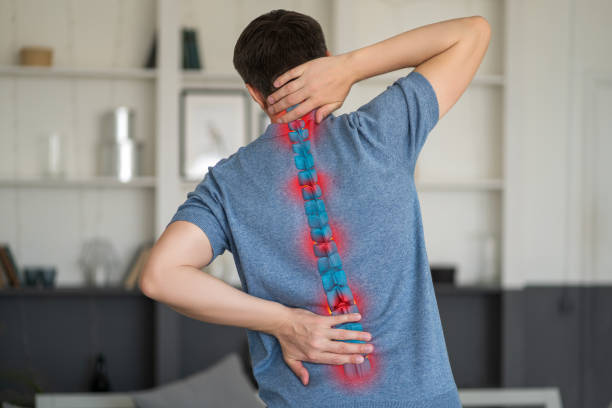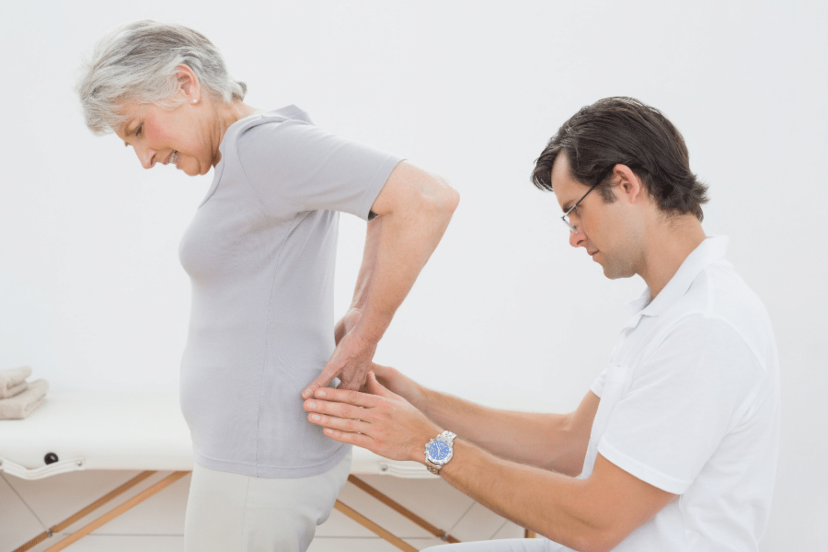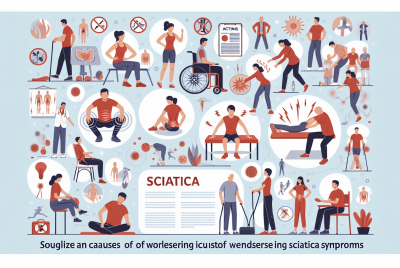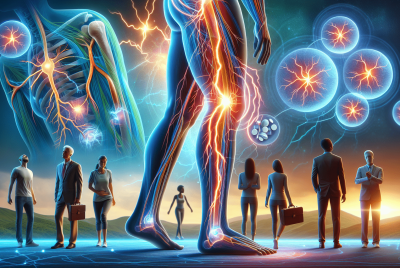Herniated disc: What is it? & How to Alleviate Pain 2023
What is a Herniated Disc?
A herniated disc, also known as a slipped or ruptured disc, refers to an issue with one of the rubbery cushions or discs between the individual bones or vertebrae that make up your spine. Picture a jelly donut, if you will. Doesn’t that seem appetizing? Now, imagine if the jelly leaks out. Not so appetizing anymore, right? Well, this is similar to what happens when a disc herniates. The softer “jelly” pushes out through a tear in the tougher exterior. This can irritate nearby nerves and cause pain, numbness, or weakness.
Causes of Herniated Disc
Disc herniation can occur in any part of the spine, but it’s more common in the lower back. It’s often the result of gradual, aging-related wear and tear called disc degeneration. As you age, your spinal discs lose some of their water content. This makes them less flexible and more prone to tearing or rupturing with even a minor strain or twist.
Symptoms of a Herniated Disc
Most herniated discs occur in your lower back, although they can also occur in your neck. Signs and symptoms depend on where the disc is situated and whether the disc is pressing on a nerve. They usually affect one side of the body.
Diagnosing a Herniated Disc
Consultation and Physical Examination
Diagnosis usually starts with a physical exam and a look at your medical history. Your doctor will check for areas of tenderness, range of motion, whether certain movements cause pain or other sensations, muscle strength, and reflexes.
Imaging Tests
Your doctor may recommend one or more types of imaging scans such as X-rays, CT scans, MRI scans, and nerve tests. These tests help to visualize the disc herniation and determine its location.
Herniated Disc Treatments

Non-Surgical Treatments
Physical Therapy
Often, the first recommendation for herniated disc treatment is physical therapy. Therapists can show you positions and exercises designed to minimize the pain of a herniated disc.
Medications
Your doctor might recommend over-the-counter pain relievers. If your pain is severe, they might prescribe narcotics, nerve pain medications, or muscle relaxers.
Injections
If other methods don’t work, your doctor might suggest cortisone injections.
Surgical Treatments
Microdiscectomy
Microdiscectomy is a surgery that involves removing the herniated portion of a disc to relieve irritation and inflammation of a nerve.
Laminectomy
In a laminectomy, a portion of the bone over the nerve root, or part of the disc material under the nerve root, is removed to give the nerve root more space and provide a better healing environment.
Home Remedies for Herniated Disc
Exercise and Posture
Regular exercise, such as walking, can help to alleviate pain and promote a quicker recovery.
Heat or Ice Therapy
Heat or ice can often help to alleviate the pain associated with a herniated disc.
Over-the-Counter Medications
Non-prescription medications can often help to reduce pain and inflammation.
Herniated Disc Prevention
Regular Exercise
Exercising regularly can help to strengthen the muscles in your back and promote a healthy spine.
Good Posture
Maintaining a good posture can significantly reduce the chances of developing a herniated disc.
Healthy Diet and Weight
Maintaining a healthy diet and weight can also significantly help to prevent a herniated disc.
Conclusion
A herniated disc can cause significant pain and discomfort. However, there are various treatment options available, both surgical and non-surgical. Home remedies and preventative measures can also be highly effective. Always remember to consult with a healthcare professional for accurate information.
Herniated Disk in the Lower Back – This article from the National Institute of Arthritis and Musculoskeletal and Skin Diseases provides detailed, research-backed information about herniated discs, their causes, symptoms, and various treatment options.
Lumbar Herniated Disc: Should I Have Surgery? – This commentary from the University of Michigan Health System discusses whether or not patients should opt for surgery when dealing with a herniated disc and provides research-based insights.
FAQs
- What is the main cause of a herniated disc?The main cause of a herniated disc is aging-related wear and tear known as disc degeneration. As we age, our spinal discs lose some of their water content, which makes them less flexible and more prone to tearing or rupturing even with minor strain or twist.
- What are the symptoms of a herniated disc?Symptoms of a herniated disc depend on the location of the herniation and whether the disc is pressing on a nerve. They usually affect one side of the body. Common symptoms can include pain, numbness, or weakness in the affected area.
- What non-surgical treatments are available for a herniated disc?Non-surgical treatments for a herniated disc include physical therapy, pain-relieving medications, and cortisone injections. Physical therapists can demonstrate positions and exercises designed to minimize herniated disc pain. If the pain is severe, doctors might prescribe stronger medications.
- What are some effective home remedies for managing herniated disc pain?Effective home remedies for managing herniated disc pain can include regular exercise like walking, heat or ice therapy to alleviate pain, and over-the-counter medications to reduce pain and inflammation. However, it’s important to note that these should be used in conjunction with professional medical advice.
- How can I prevent a herniated disc?Regular exercise can help strengthen the muscles in your back and promote a healthy spine. Maintaining good posture, especially while lifting and carrying heavy objects, can help reduce the strain on your spine. Additionally, maintaining a healthy diet and weight can keep your spine healthy and reduce the chances of a herniated disc.




